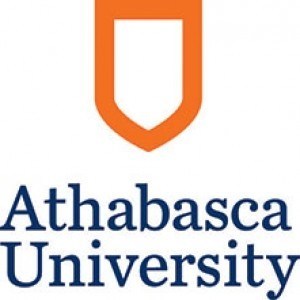Photos of university / #stfxuniversity
Program Description: Bachelor of Science in Earth Sciences at St. Francis Xavier University
The Bachelor of Science in Earth Sciences at St. Francis Xavier University provides students with a comprehensive understanding of the Earth’s physical structure, processes, and history. This interdisciplinary program integrates concepts from geology, oceanography, meteorology, and environmental science to equip students with the skills and knowledge necessary to analyze and address complex environmental and planetary issues. Students will explore topics such as mineral and rock identification, plate tectonics, climate change, natural hazards, and resource management, preparing them for careers in geology, environmental consulting, research, or further academic pursuits.
Throughout the program, students engage in both classroom instruction and practical fieldwork, gaining hands-on experience in sample collection, data analysis, and laboratory techniques. The curriculum emphasizes critical thinking, scientific inquiry, and effective communication, fostering the ability to interpret data and present findings clearly. Students also have opportunities to participate in research projects, internships, and collaborations with industry partners, enhancing their professional development and real-world readiness.
The program lays a solid foundation in mathematics and physics, essential for understanding geological phenomena and modeling natural systems. Advanced courses build on this foundation, covering topics such as petrology, mineralogy, geophysics, and hydrogeology. The university’s state-of-the-art facilities, including laboratories and field stations, support experiential learning and promote a deeper understanding of Earth processes.
Graduates of the Earth Sciences program are well-prepared for diverse career paths in environmental assessment, resource exploration, natural hazard mitigation, or graduate studies. They contribute to sustainable management of Earth's resources, protect the environment, and advance scientific knowledge about our planet. With a strong emphasis on research, critical analysis, and practical skills, the program prepares students to make meaningful contributions to understanding and solving the Earth’s most pressing challenges.
The Earth Sciences program at St. Francis Xavier University offers students a comprehensive exploration of the Earth's physical structure, processes, and history. Designed to cultivate a deep understanding of planetary systems, the program covers a broad range of topics including geology, mineralogy, petrology, geophysics, geomorphology, and environmental geology. Throughout their studies, students gain practical skills through laboratory work, field excursions, and research projects, enabling them to analyze rock formations, interpret geological data, and understand Earth's dynamic systems.
The curriculum emphasizes critical thinking and analytical skills, preparing graduates for careers in natural resource management, environmental consulting, geotechnical engineering, and research. Students have opportunities to participate in field trips to diverse geological sites, which enhance their hands-on learning experience. The program also encourages interdisciplinary approaches, integrating aspects of chemistry, physics, and environmental science to provide a holistic understanding of Earth processes.
Moreover, the program provides pathways for students interested in pursuing graduate studies or professional certifications. Faculty members are experienced geoscientists dedicated to mentorship and research, often involving students in ongoing projects that contribute to regional and global geological knowledge. Graduates of the Earth Sciences program at St. Francis Xavier University leave well-equipped to tackle issues related to natural resources, environmental sustainability, and Earth system hazards, making meaningful contributions to society.
Degree Program Requirements for Earth Sciences at St. Francis Xavier University:
The Bachelor of Science in Earth Sciences at St. Francis Xavier University requires students to complete a total of approximately 120 credit hours to graduate. The program is designed to provide students with a comprehensive understanding of the Earth's physical properties, geological processes, and environmental systems. Core coursework includes introductory courses in geology, mineralogy, and petrology, as well as advanced classes in structural geology, geophysics, sedimentology, and stratigraphy. Students must also undertake laboratory work and field studies to gain practical experience.
In addition to technical courses, the program emphasizes the development of analytical skills, data interpretation, and scientific communication. Students are encouraged to participate in research projects and internships to apply their knowledge in real-world settings. The curriculum typically includes math and physics prerequisites, such as calculus and introductory physics, to support understanding of geophysical phenomena. A notable component of the program is the senior thesis or capstone project, which involves independent research under faculty supervision.
Elective courses allow students to explore related areas such as environmental science, oceanography, and GIS (Geographic Information Systems). The program also includes general education requirements in humanities and social sciences to foster well-rounded expertise. To complete the degree, students must pass all courses with a minimum grade point average as specified by the university policies. The program aims to prepare graduates for careers in geology, environmental consulting, resource management, or further graduate studies.
Want to improve your English level for admission?
Prepare for the program requirements with English Online by the British Council.
- ✔️ Flexible study schedule
- ✔️ Experienced teachers
- ✔️ Certificate upon completion
📘 Recommended for students with an IELTS level of 6.0 or below.
The Earth Sciences program at St. Francis Xavier University offers students a comprehensive education in geology, paleontology, environmental science, and related disciplines. Regarding financing studies, students have various options to fund their education, including federal and provincial financial aid programs, scholarships, and bursaries specifically available to Earth Sciences students. The university provides information about scholarships such as entrance scholarships awarded based on academic achievement, as well as awards for students demonstrating financial need or integrating community service. Additionally, many students finance their studies through part-time employment on or near campus, internships, or co-op placements that offer stipends or stipendiary internships related to Earth Sciences.
International students may have access to different scholarship programs and may also consider private funding sources or external grants for international students. The university’s financial aid office advises students to complete the required application forms for government student loans, including the Canada Student Loans Program, and provincial grants, which are accessible to eligible residents of Nova Scotia. In some cases, students may qualify for specialized research assistantships or teaching assistantships that provide a stipend and may also include tuition remission, particularly in graduate stages of the program. Scholarships and aid are awarded based on academic performance, research potential, and financial need, and students are encouraged to apply early and explore all available funding opportunities.
The university also offers guidance on budgeting and financial planning for students to help manage educational expenses effectively. For those enrolled in the Earth Sciences program, it is recommended to regularly check the university and department websites for updates on new scholarships, grants, and special funding opportunities, especially for students engaged in research projects or fieldwork. Financial support is designed to reduce the economic barriers to higher education, allowing students to focus on their academic and research pursuits in Earth Sciences.
Earth Sciences at St. Francis Xavier University offers students a comprehensive understanding of the Earth’s physical composition, processes, and history. The program is designed to equip students with fundamental knowledge in geology, geophysics, geochemistry, and environmental Earth sciences. Students explore topics such as mineral and energy resources, natural hazards, climate change, and the Earth's structure and evolution. The curriculum combines theoretical coursework with practical fieldwork, laboratory analysis, and research projects to develop both conceptual understanding and hands-on skills. The program emphasizes critical thinking, problem-solving, and analytical abilities essential for careers in resource management, environmental consulting, geotechnical engineering, and academia. Students have access to modern laboratories and field equipment, enabling experiential learning. Collaboration with government agencies, industry partners, and research institutions offers opportunities for internships and applied research. The program also prepares students for graduate studies or professional certifications, fostering lifelong learning and adaptability in a changing world. By studying Earth Sciences at St. Francis Xavier University, students gain a solid foundation in understanding Earth's natural systems and their importance in sustaining life and supporting economic development. The program encourages curiosity and scientific inquiry, with faculty members dedicated to mentoring students and advancing research in Earth sciences. Overall, the program aims to produce well-rounded geoscientists capable of addressing environmental challenges and contributing to sustainable resource management.



